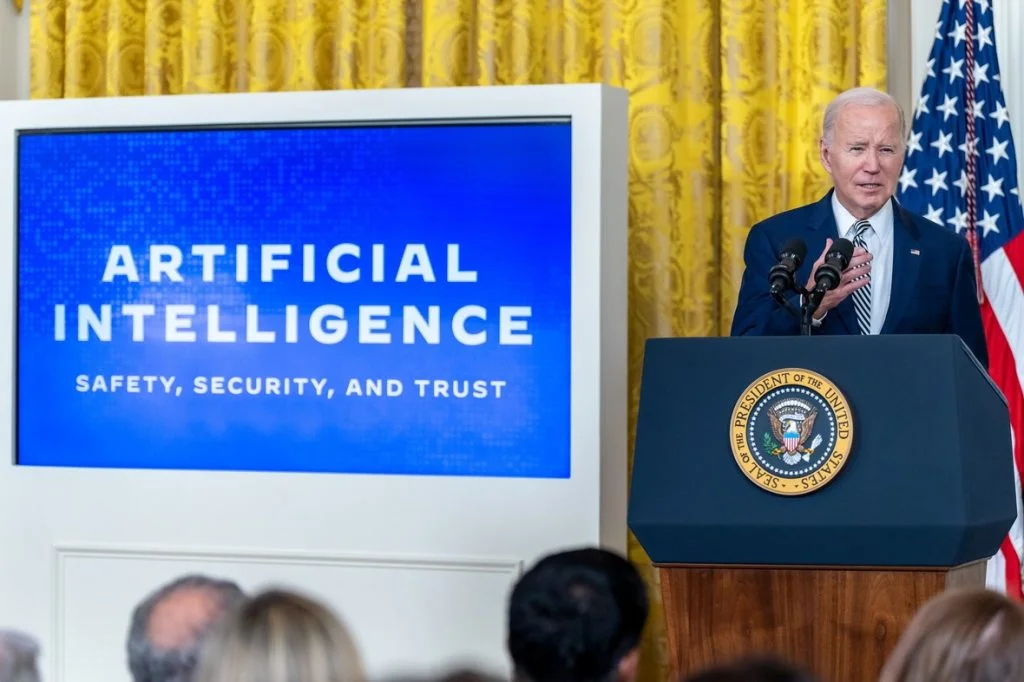The U.S. is following the EU’s footsteps in developing critical standards for the safe deployment of AI, especially generative AI, which can create realistic content such as images, text, and audio.

The U.S. is stepping up its efforts to regulate artificial intelligence (AI), especially generative AI, which is a type of AI that can create realistic content such as images, text, and audio.
U.S. President Joe Biden, with his administration, aims to develop critical standards for the safe deployment of generative AI within the nation. This move comes after the EU’s landmark AI rules, which were announced earlier this month and set a framework for the ethical and legal use of AI in the bloc.
The U.S. started its AI regulation journey in October this year when Biden issued an executive order on AI, which directed federal agencies to adopt best practices and principles for AI development and use. The order also established an AI advisory committee and a national AI initiative office to coordinate and oversee the AI activities of the government.
Following the order, the Commerce Department’s National Institute of Standards and Technology (NIST) took the lead in conducting a comprehensive evaluation of the AI systems and practices in the U.S.
The NIST is seeking public and industry input on AI regulation by February 2, 2024, and plans to conduct extensive testing on AI-related systems to ensure their safety, security, and trustworthiness. The NIST is also working on developing guidelines and standards for evaluating and measuring AI performance and quality.
The U.S. AI regulation is important for several reasons:
- It shows the U.S.’s commitment to advancing and utilizing AI in a responsible and ethical manner, as well as to addressing the potential risks and challenges posed by AI, such as privacy, bias, accountability, and security.
- It positions the U.S. as a global leader and a competitor in the AI space, especially in the face of the EU’s ambitious and comprehensive AI rules, which aim to set a global standard for AI governance.
- It focuses on the regulation of generative AI, a relatively new and emerging field of AI with immense potential and implications for various domains and sectors, such as entertainment, education, health, and media.
Generative AI can also pose significant threats and challenges, such as misinformation, manipulation, and fraud, if not regulated properly. Therefore, the U.S. AI regulation is a crucial step towards ensuring the safety and quality of generative AI and its applications.
